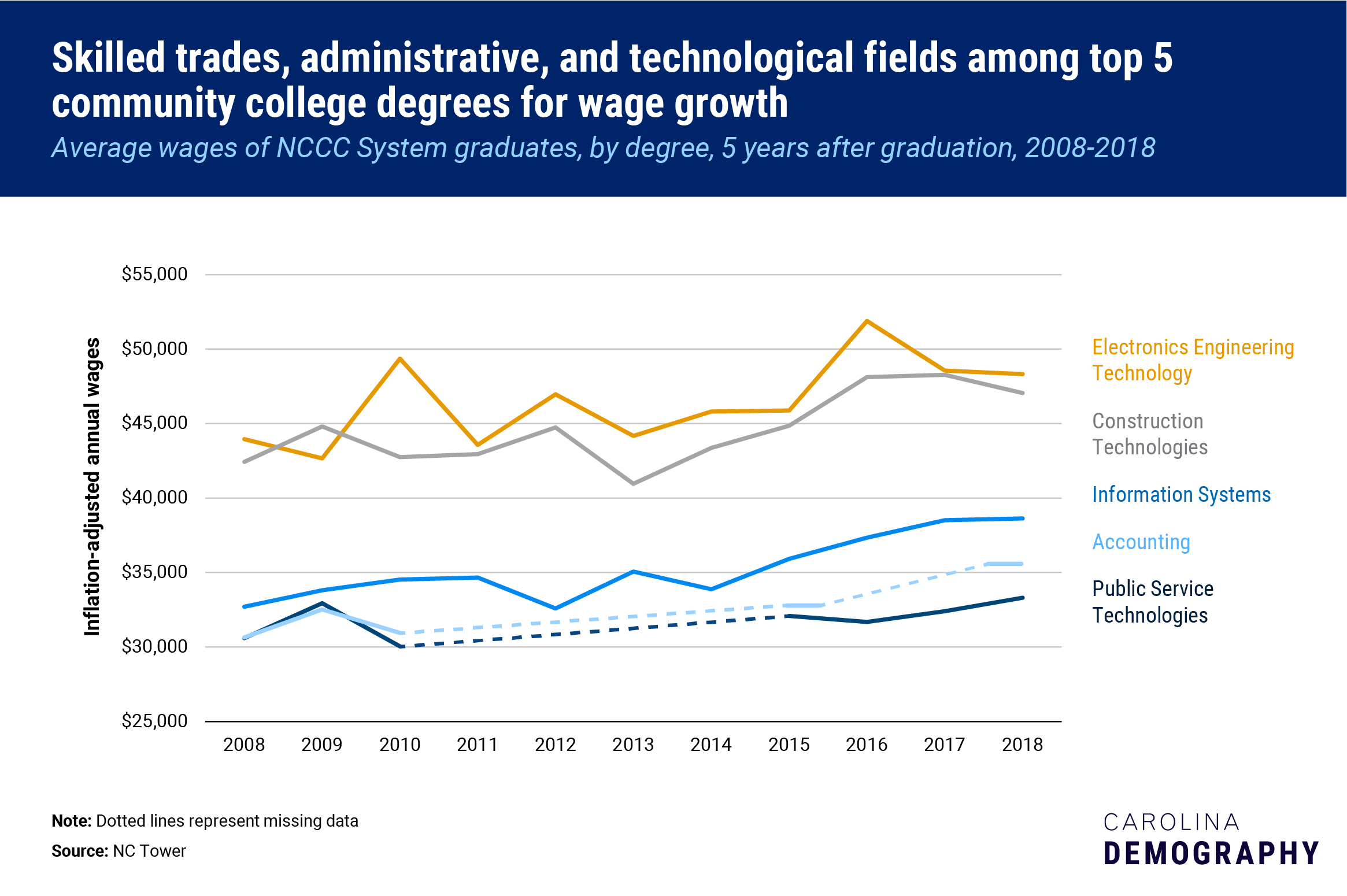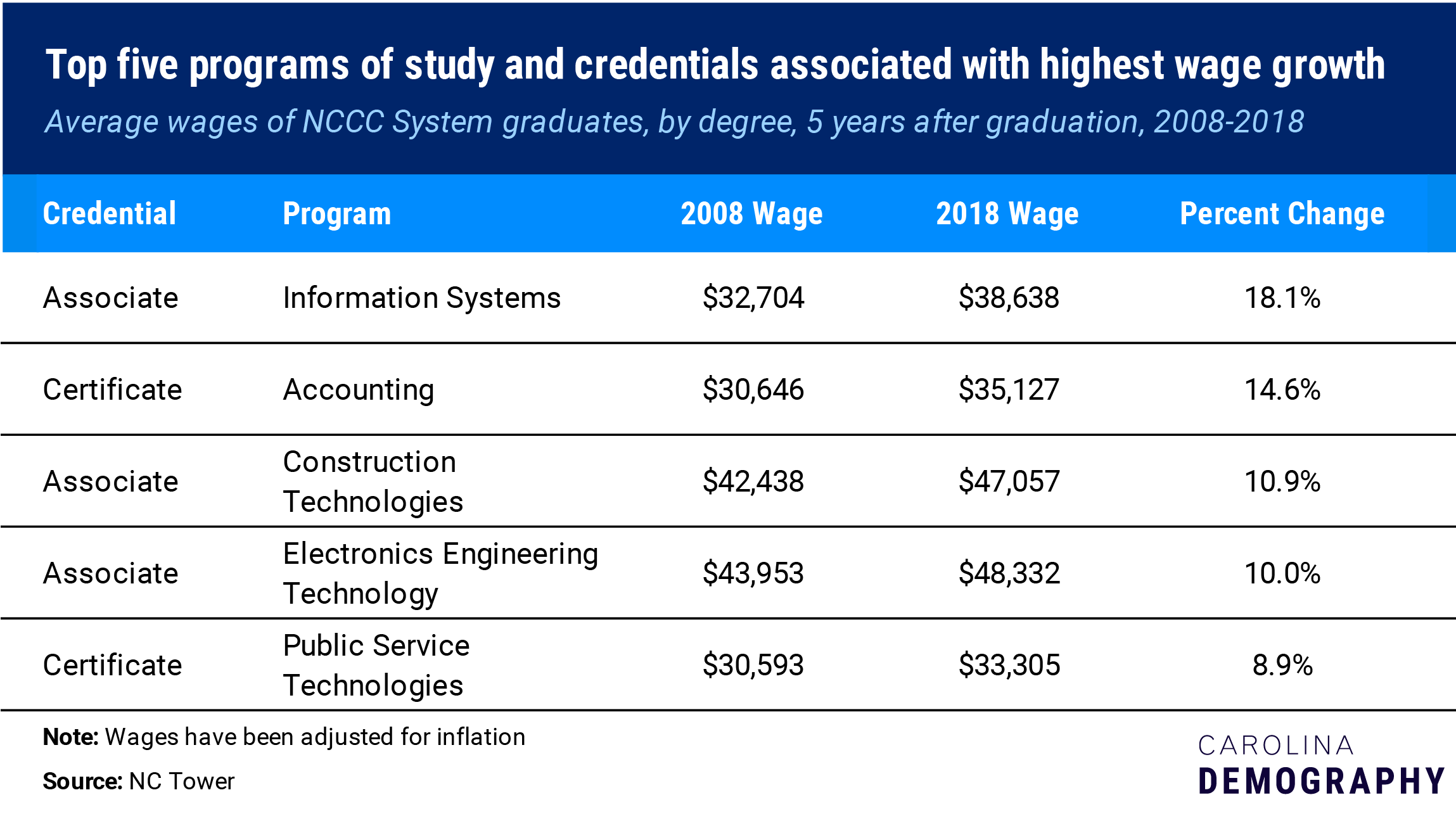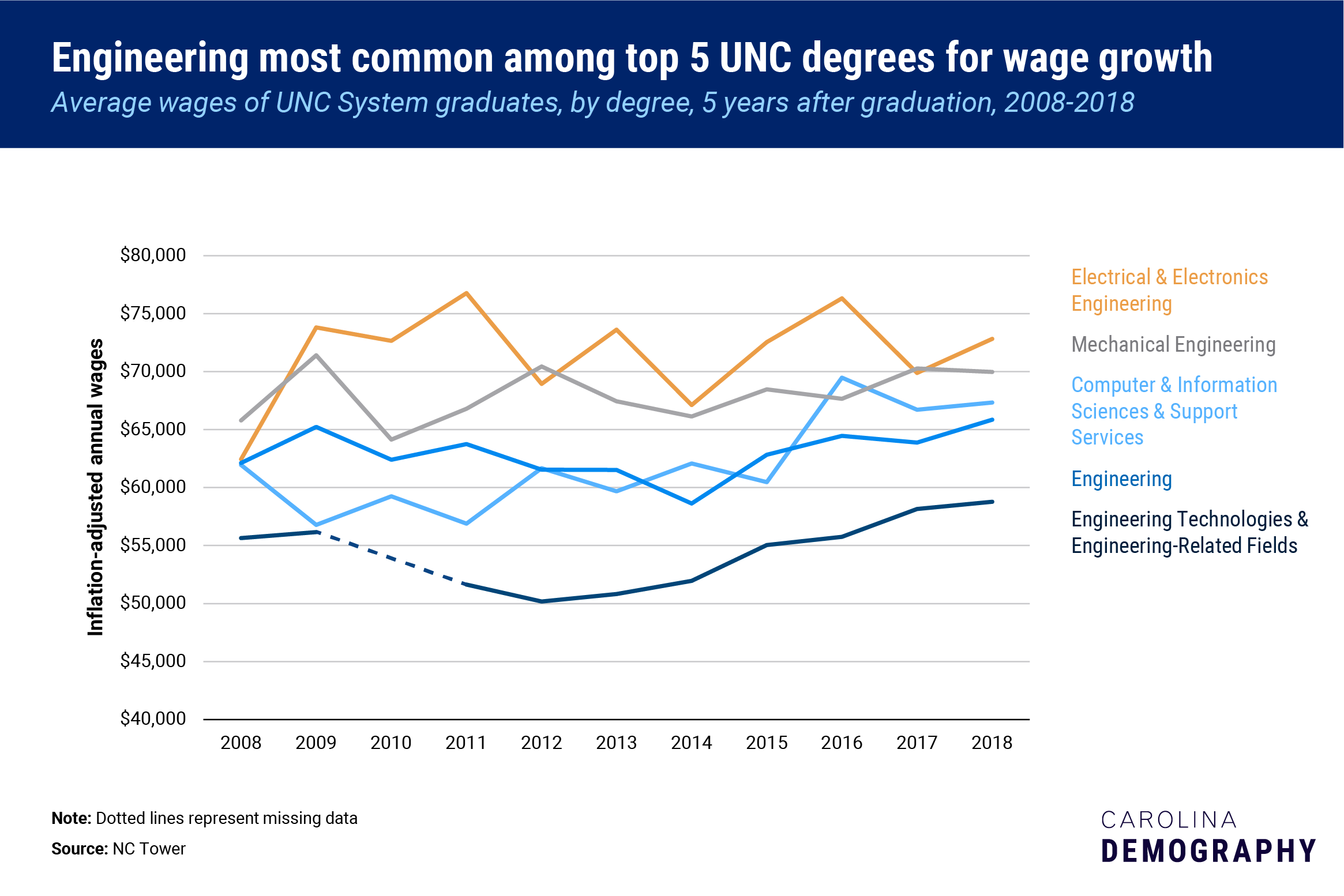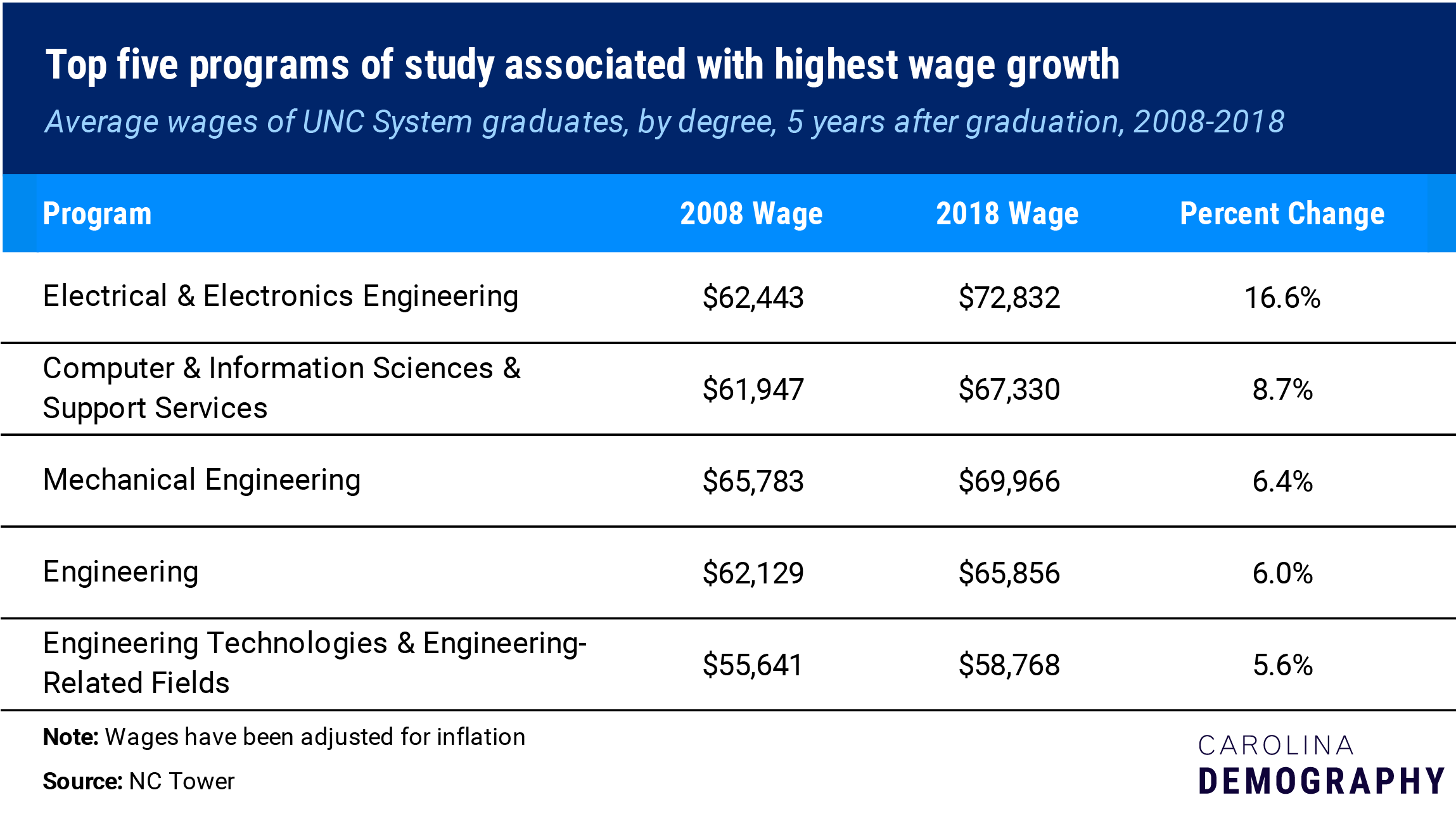Degrees and credentials with highest growth in wages
Looking at graduates from the NCCC and UNC systems over 10 years.

In previous posts, we have highlighted the programs of study where NC Community College graduates and UNC system graduates were making the highest average annual wages five years after graduation. This post examines the programs of study and credentials associated with the highest growth in wages over a 10-year period for both NC Community Colleges and UNC system graduates [1]. In terms of making decisions about a future career, wage growth is another data point that a student may want to consider when selecting a program of study or credential to pursue; those that have larger increases in wages may indicate more opportunities for future employment.
For this analysis, we used the NC Tower database, and selected graduates from both NC Community Colleges and the UNC System who graduated 10 years apart – 2003 and 2013. We looked at their reported wages five years post-graduation – in 2008 and 2018 – in order to assess typical early career wages in each field of study.
We included only those students who graduated in programs of study with credentials that existed in both graduation years. Any old/outdated programs (i.e. those existing in 2003, but not in 2013) or new programs (i.e. those in 2013, but not in 2003) were excluded. All wages were indexed to the real wage value of 2018 using calculations available from the Bureau of Labor Statistics. Minimum wage and number employed thresholds were set for the community college and UNC systems. Specifically, programs/credential data were only included from NC Community Colleges if the associated wages were at least $30,000 and the number employed in either year was at least 50. Likewise, undergraduate (Bachelor’s degree) programs were only included from the UNC system if the associated wages were at least $45,000 and the number employed in either year was at least 100.
The top 5 programs of study and credentials from NC Community Colleges associated with the highest wage growth are shown in the table and graph below.


As you can see, the programs (both Associate degrees and certificates) with most wage growth among NC Community College graduates were split among skilled trades, administration, and technology. It is also evident that while all of the programs/credentials showed an overall increase over the 10 year period, there was not a steady climb; instead, wages were volatile from 2008 to 2018, perhaps reflecting changes in economic conditions. In addition to fluctuation, a few data points were missing (i.e., wages for Public Service Technology graduates in 2011 through 2014 were not available).
Additionally, as shown below, the undergraduate programs/credentials with most wage growth among UNC system graduates centered on engineering.


Like the community college results, wages did not steadily rise, but instead rose or fell depending on the year. It is interesting to note that in both NC Community College and UNC system data, similar degrees appeared subject to the same year to year fluctuations: e.g. Electronics Engineering Technology (Associate Degree) and Electrical & Electronics Engineering (Bachelor’s Degree) both showed especially volatile wages from 2008 to 2018 while Information Systems (Associate Degree) and Computer & Information Sciences and Support Services (Bachelor’s Degree) displayed relatively little volatility. This may point to common economic factors impacting annual wages received by these pairs of similar professions. A single data point was missing from the UNC system data: 2010 wages for Engineering Technologies & Engineering-Related Fields.
The information presented here is important. While these credentials/programs may not be associated with the highest possible wages an individual could make after obtaining a postsecondary degree, they do point to career paths with strong prospects for substantial numbers of job openings as well as a need for additional trained employees.
[1] Wage growth refers to the percentage increase in wages between the first and last year of a given period of time, after adjusting for inflation. In the current analysis, this period is 2008 to 2018. Economically, this is an important metric because it can illuminate employment sectors and jobs that are in demand across the state.
Need help understanding population change and its impacts on your community or business? Carolina Demography offers demographic research tailored to your needs.
Contact us today for a free initial consultation.
Contact UsCategories: Education, NC in Focus

The Center for Women’s Health Research (CWHR) at the University of North Carolina School of Medicine released the 12th edition of our North Carolina Women’s Health Report Card on May 9, 2022. This document is a progress report on the…

Dr. Krista Perreira is a health economist who studies disparities in health, education, and economic well-being. In collaboration with the Urban Institute, she recently co-led a study funded by the Kate B. Reynolds Foundation to study barriers to access to…

Our material helped the NC Local News Lab Fund better understand and then prioritize their funding to better serve existing and future grant recipients in North Carolina. The North Carolina Local News Lab Fund was established in 2017 to strengthen…
Your support is critical to our mission of measuring, understanding, and predicting population change and its impact. Donate to Carolina Demography today.